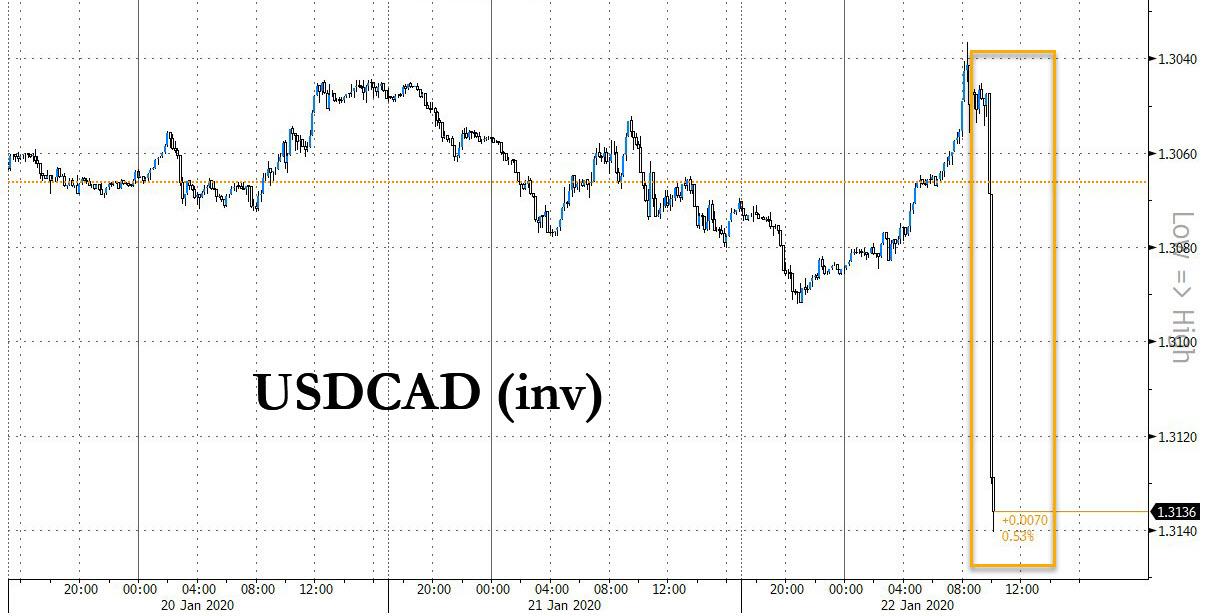Loonie Tumbles After Unexpectedly Dovish BOC Removes “Appropriate Rate” Language
And another central bank is getting ready to cut rates even as the world is supposedly “rebounding” from the 2019 growth scare.
Moments ago, the Bank of Canada held its overnight rate at 1.75%, in line with expectations, and highlighting the stabilization in the economy and trade but emphasizing the high degree of uncertainty and geopolitical tensions.
However, in a surprisingly dovish turn, the BOC revised its forward guidance, removing the “appropriate” rate language from final paragraph when referring to how Governing Council views maintaining the current level of overnight rate. The language as it now stands is “in determining the future path for the Bank’s policy interest rate, Governing Council will be watching closely to see if the recent slowdown in growth is more persistent than forecast. In assessing incoming data, the Bank will be paying particular attention to developments in consumer spending, the housing market, and business investment.” Here, the BOC dropped the line “Based on developments since October, Governing Council judges it appropriate to maintain the current level of the overnight rate target.”
The central bank also focused on Q4 weakness, noting that “job creation has slowed and indicators of consumer confidence and spending have been unexpectedly soft.”
Amid the dovish reversal, the bank also said growth will be weaker and the output gap wider in the near term than was predicted in October, and as a result its revised its growth estimate lower, now expecting Q4 2019 GDP growth to 0.3%, from 1.3% previously.
In listing the factors behind this slowdown, the BOC said that “the effects of global trade conflicts and elevated uncertainty may have spread beyond investment and exports, contributing to the slowdown in the labour market and weighing on confidence. This may have contributed to more cautious behaviour by households.” The central bank also pointed to “special factors” weighing on growth including strikes, adverse weather, production shutdowns and inventory adjustments.
And in a direct hint that Canada may soon experience its own negative rates, the BOC said that “Canadians have been saving a larger share of their incomes, which could signal increased consumer caution.” Well, we all know how central banks approach the problem of too much savings, and it rhymes with -IRP.
In kneejerk response to this surprisingly dovish statement, the loonie tumbled 100 pips, with the USDCAD kneejerking from 1.3040 to 1.3140.
Tyler Durden
Wed, 01/22/2020 – 10:20
via ZeroHedge News https://ift.tt/2vfi0jl Tyler Durden
